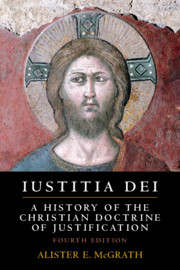Book contents
- Iustitia Dei
- Iustitia Dei
- Copyright page
- Contents
- Tables
- Preface to the Fourth Edition
- Abbreviations
- Introduction
- Part I Justification
- 1 The Hebraic Context
- 2 Paul and the Shaping of the Christian Tradition
- 3 The Fountainhead
- Part II The Middle Ages
- Part III Protestantism
- Part IV Catholicism
- Part V The Modern Period
- Conclusion
- A Brief Glossary of Medieval Soteriological Terms
- Works Consulted
- Index
1 - The Hebraic Context
Semantic Aspects of the Concept of Justification
from Part I - Justification
Published online by Cambridge University Press: 27 January 2020
- Iustitia Dei
- Iustitia Dei
- Copyright page
- Contents
- Tables
- Preface to the Fourth Edition
- Abbreviations
- Introduction
- Part I Justification
- 1 The Hebraic Context
- 2 Paul and the Shaping of the Christian Tradition
- 3 The Fountainhead
- Part II The Middle Ages
- Part III Protestantism
- Part IV Catholicism
- Part V The Modern Period
- Conclusion
- A Brief Glossary of Medieval Soteriological Terms
- Works Consulted
- Index
Summary
This chapter explores the difficulties in moving from concepts of righteousness and justification shaped by a Hebraic understanding of divine faithfulness to secular Roman and Greek concepts of justice. Particular attention is paid to the Latin translations of the Old Testament, which served as the basis for theological reflection for the Latin-speaking western church from late classical antiquity to the close of the Middle Ages. At multiple points, difficulties were encountered in rendering the rich theological meaning of the Hebrew term sedaqa by the Latin term iustitia.
- Type
- Chapter
- Information
- Iustitia DeiA History of the Christian Doctrine of Justification, pp. 11 - 25Publisher: Cambridge University PressPrint publication year: 2020

